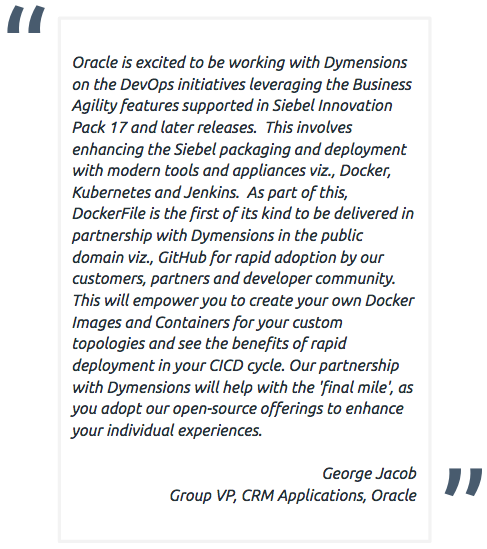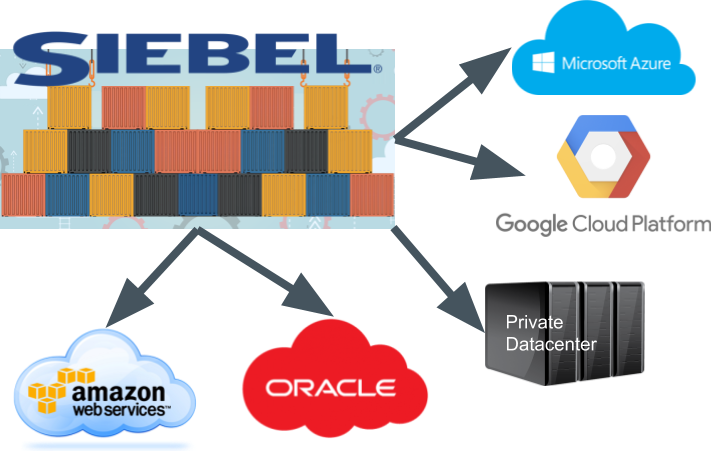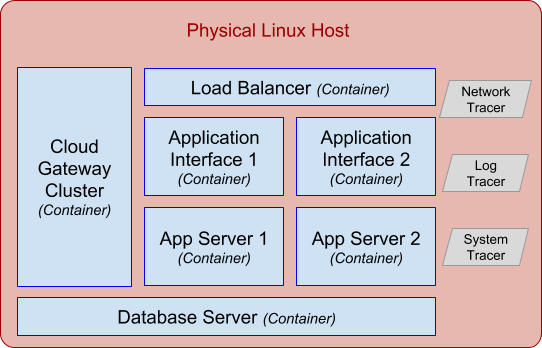Load ‘em up, Siebel Docker containers are here
The most recent release of Siebel IP2017 comes packed with features like Workspaces for parallel development, Siebel Management Console, Unified Application Interface running in standard Java based web servers, Runtime Repository, many more. These features collectively are moving Siebel to be cloud-ready and also lowering the total cost of ownership.

At Dymensions, we are committed to furthering this goal by offering solutions that enable Siebel customers to deploy business process enhancements to production frequently, and stay ahead of the rapidly changing business landscape. We are focussed on the simplification & automation of the last mile configuration that customers typically do to take a packaged product to production. Siebel Docker containers enable rapid deployments that unleashes the true potential of Siebel Innovation Pack 2017 and take full advantage of its cloud ready capabilities. Implemented correctly, Siebel application stack running as docker containers can cut deployment times significantly and bring a whole new level of agility to typical Siebel configuration lifecycle. Key capabilities of container based deployment includes: - containers. Installation is done once during image creation. - Easy deployment on virtual machines or bare metal servers in your own data centers or in IaaS offering such as Oracle Public Cloud, Amazon Web Services, Azure Cloud etc - Optimized images for development, test, performance & staging environments - Efficient use of hardware resources when compared to VMs (see below) - Opportunities for end-to-end automation to reduce total cost of ownership
- Opportunities to implement continuous integration and deployment (look for more information on this in the next post)

Advantages of Docker over VMs
Docker is one of the widely used technologies and over 4 million applications have been placed in containers using Docker technology and over 37 billion containerized applications have been downloaded (according to latest research). It is predicted that over the next 5 years, applications container market is going to explode significantly, representing a CAGR of 35% over the next 3 years (Ref., 451 Research). Docker is an open-source technology that not only is a favorite of Linux powerhouses like Red Hat, Canonical, etc but also being adopted significantly by top proprietary software companies like Oracle, Microsoft etc.

Docker containers use shared operating systems and this makes it very efficient than hypervisors (used for VMs) in terms of use of system resources. Virtual Machines are virtualizing hardware whereas containers like Docker rest on top of a single Linux instance. This essentially means one can have as many as 4-6 times the number of application instances as you can using VMs on the same hardware. Docker also enables developers to easily package, ship and run any application as a lightweight self sufficient container. This post is the first in a three stage post on how Siebel DevOps can be achieved using modern technologies and appliances like Docker, Jenkins and Kubernetes. Watch this space for further updates.


